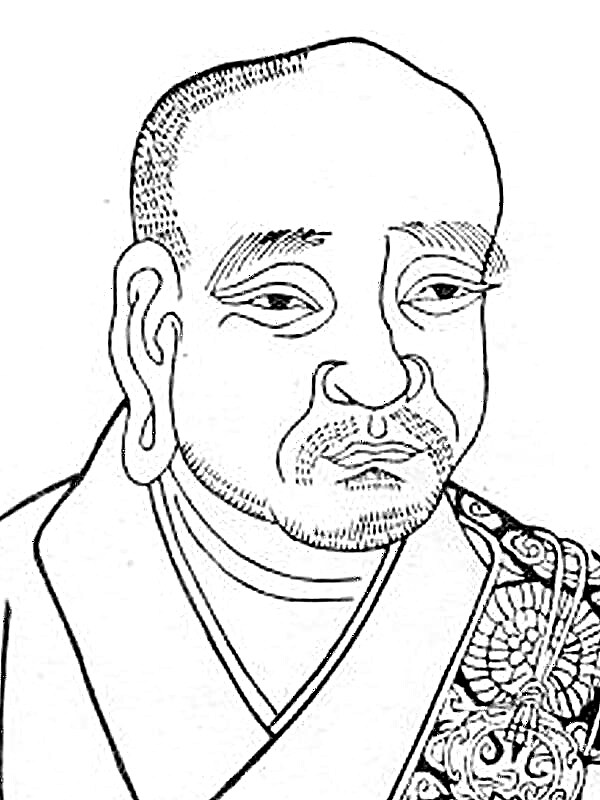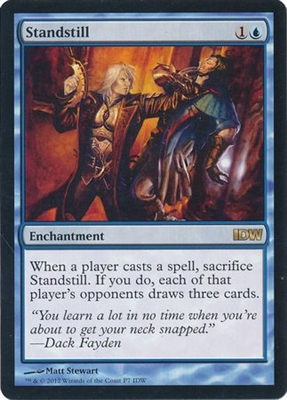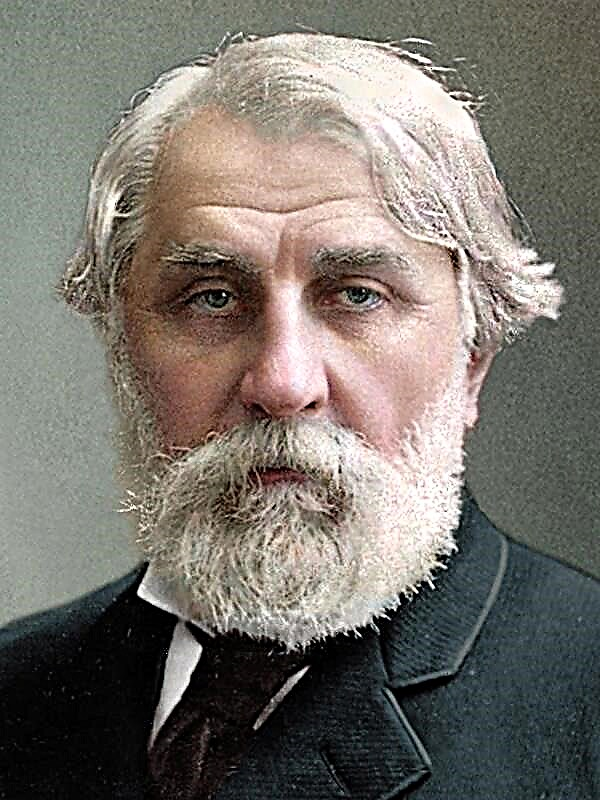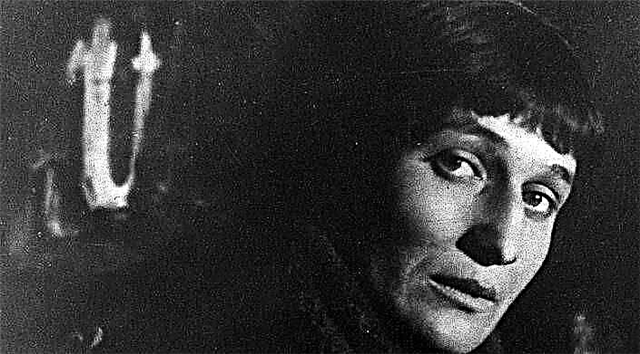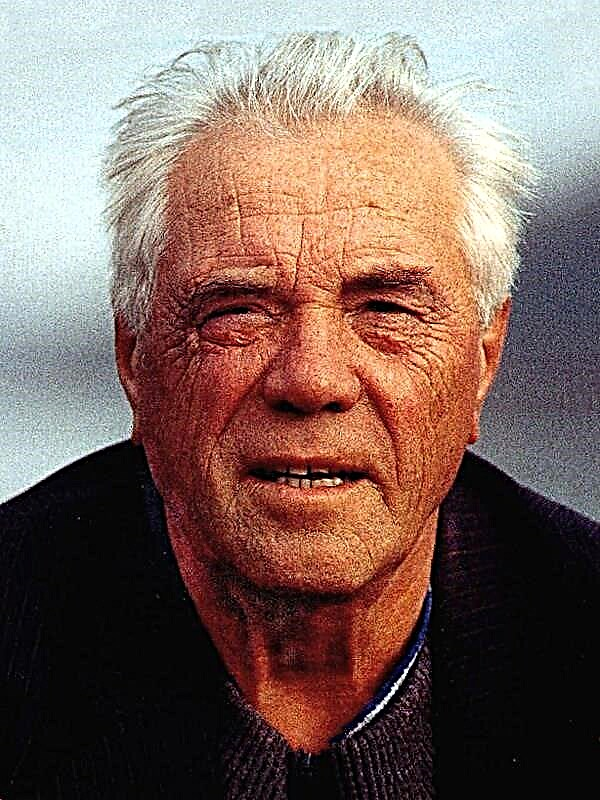“Poet passionate for suffering,” exclaims Dostoevsky after reading Nekrasov’s Last Songs. Indeed, the motive of deep grief with a red thread runs through all the work of this national author. “Reflections at the front door” is one of his works, where we hear the eternal groan of the Russian people.
History of creation
It took Nekrasov just two hours to create this masterpiece. In 1858, on a rainy autumn day, the wife called the poet to the window, from where peasants could be seen who “wished to file a petition and arrived early in the house”, where the Minister of State Property lived.
Nekrasov came up exactly at that moment when "the house and city wipers drove the peasants away, pushing them in the back" (from the memoirs of Panayeva). The scene had a strong effect on him and served as the emergence of a new poem.
Genre, direction and size
The poem is difficult to attribute to a certain genre: it combines the features of elegy (sad thoughts about the people's fate), satire (a reflection of the lifestyle of the “owner of luxurious chambers”), songs (song motifs are present in the final part of the work, starting with the words “Native land! "). However, one can unambiguously determine the direction - civic lyrics: the lyrical hero reflects his attitude to social events.
The work is written with a multi-stop anapaest (alternating three-foot and four-foot).
Images and Symbols
The image of the “front door” becomes the embodiment of the suffering of poor peasants, cruelty, social inequality. All “wretched faces” come to him. But the rich do not care about the slaves: the owner of the "luxurious chambers" showed indifference to the unfortunate petitioners, he did not even go out to them, "he was deeply embraced by sleep."
The image of the village peasants is collective: Nekrasov reflected the situation of all workers who are forced to tolerate neglect by the nobles, work to the point of exhaustion, providing the whole country with their labor. On the poor, anger is always taken out, they are not considered to be people, although they are the support of the state, its strength.
The symbolic meaning of the Volga is also important: the poet compares the grief of men with the spilling waters of the river, reflecting a feeling of deep gloom, as well as the scale of national grief.
Themes, problems and mood
The main theme of the poem is the theme of peasant fate. Nekrasov reflected the real situation of peasants in post-reform Russia (in 1861, serfdom was abolished). The people still endure oppression from the masters, trying by any means to obtain means of subsistence, exhausted in hard work. The reform did not help them, because no one thought about the adaptation of ordinary people in a new life. They remained dependent slaves.
The problem of social injustice also attracts the attention of the author. Nekrasov, using the example of poor petitioners and an influential nobleman, shows how the life of the rich and the poor is very different. While some lead an idle life, eat plenty, arrange receptions, others put on “homemade bast shoes”, have “tanned faces and hands” from constant labor under the scorching sun.
Nekrasov in the work touches on the theme of compassion. In the last lines, the lyrical hero addresses the people directly:
Ile, destinies obeying the law,
All that you could have already done
Created a song like a groan
And spiritually rested forever? ..
The author writes about the helplessness of the people, about the inability of the peasant to change his life. He mourns over the miserable barge haulers, forced to bear their burden for decades. There is no place where the “sower and keeper” of the Russian land does not moan, this sound has become so commonplace that it is already called a “song”.
In the work, the mood of the lyrical hero changes. With vicious pathos, he describes the life of the “owner of luxurious chambers,” accusing him of “deafness to good”, of a meaningless existence. However, the hero treats poor petitioners differently: he is imbued with sympathy for the fate of the common people, speaks with pity about their impoverished appearance, their difficult situation.
Main idea
The main idea of the poem is the impossibility of peasants to achieve a happy life with social inequality. They are heavily dependent on higher people, are not able to do something for their own salvation. A simple worker suffers cruelty, oppression, an unfair attitude, and the parasite on the body of the country, the next gentleman, spends his public wealth on chic and idle weekdays. The author is indignant that everyone sees this, but no one does anything. Therefore, he decides to convey the truth to the upper strata of society, showing that such an attitude towards ordinary people leads the country into the abyss.
The meaning of the Nekrasov antithesis is simple and clear: while the workers are unsuccessfully fighting for their legal rights, their oppressors, useless and unscrupulous, are ruining the country with waste and their laziness. By encouraging such a stratification of society, a person becomes an enemy of his country.
Means of artistic expression
Nekrasov’s work is similar to the story: we can trace the sequence of actions, there are several heroes in it. However, speech certainly allows us to call it a poem. These are not only rhyming phrases, but also special paths:
- Epithets that determine not only the type of image, but also the author’s attitude to it: “poor people”, “wretched faces”, “owner of luxurious chambers”.
- Anafora (one-man management) Reception strengthens the motive of suffering, human grief: "He groans in the fields, on the roads, He groans in prisons, in prison."
- Evil pathos at the beginning of the work is carried out with the help of invective - a sharp denunciation of the prosperous existence of the nobleman.
- The topic of social injustice is revealed thanks to such an artistic technique as the antithesis: the usual “wretched faces” who come here for help are opposed to the magnificent front door.
- Several times the author uses the rhetorical question (“What do you need this poor people?”, “Could we take out the grudge against them?”), And this work ends with this stylistic figure. Nekrasov appeals to the whole people, trying to call him to fight injustice. These lines sound like a “challenge”.



